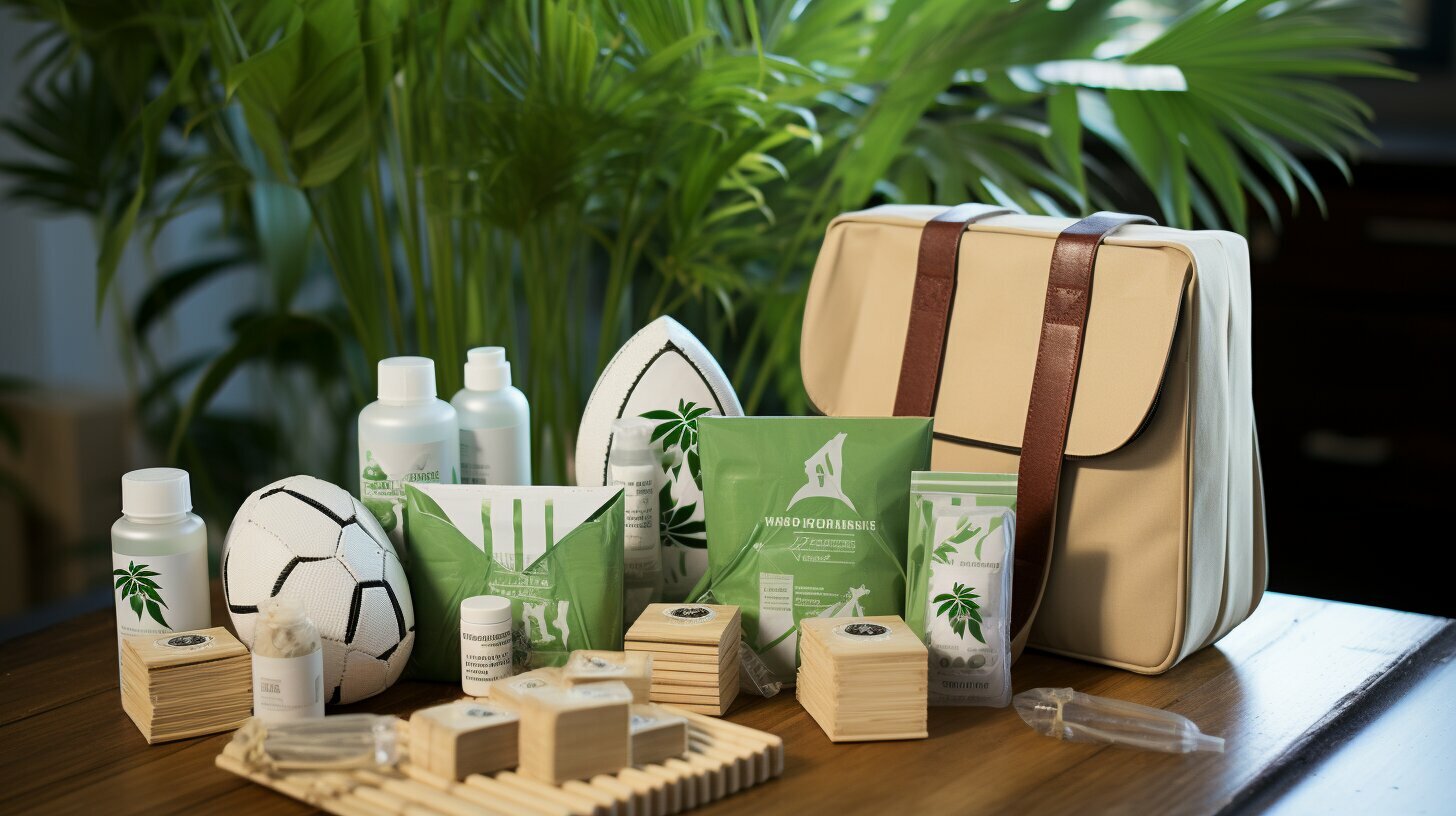Football is a popular sport that requires proper first aid solutions, and ethical considerations are increasingly important in today’s eco-conscious world. As the world becomes more aware of the impact of our actions on the environment, finding sustainable and eco-friendly alternatives in every aspect of our lives has become crucial.
In the world of football, this includes the use of first aid kits that are not only designed to prioritize player safety but also take into account the well-being of the planet. Ethical considerations in the use of eco-friendly and sustainable first aid kits for football play a significant role in reducing waste and choosing materials that are kinder to the environment.
These first aid kits are specifically designed to address the needs of football players while minimizing their ecological footprint. By focusing on eco-friendly and sustainable options, these kits aim to provide essential medical aid without compromising the planet’s health.
From the materials used in bandages to burn care products, cleansing wipes, foil blankets, nitrile gloves, and resusciade face shields, every component of these kits is carefully selected with sustainability in mind. Bandages made from calico or non-woven material are not only biodegradable but also reusable, reducing waste and promoting a circular economy.
However, it is important to acknowledge the challenges in achieving a completely zero-waste first aid kit for football. Conforming bandages, for instance, are not recyclable and can contribute to waste accumulation. Similarly, burn dressings often come with non-recyclable plastic packaging, posing a dilemma in sustainable packaging solutions.
Sterile cleansing wipes, foil blankets, and nitrile gloves also present their own recycling and reusability challenges. The materials used in these products may not be easily recyclable, making it crucial to explore alternative options or seek ways to reduce plastic waste.
While it may not be possible to eliminate all waste, efforts can be made to choose more sustainable alternatives throughout the first aid kit. Safety pins and scissors, for example, can be sterilized and reused, while tapes often come in recyclable packaging.
Overall, ethical considerations in the use of eco-friendly and sustainable first aid kits for football are an important step towards a more environmentally conscious approach to the sport. By prioritizing both player safety and the planet’s health, these kits contribute to a more sustainable future for football and beyond.
The Importance of Ethical Considerations in Football Gear
With the growing awareness of sustainability and ethical practices, football enthusiasts are seeking eco-conscious and ethical football gear. When it comes to first aid kits, ethical considerations play a crucial role in ensuring the safety of players while also minimizing impact on the environment.
One of the key aspects to consider is the materials used in the first aid kit. Bandages, burn care products, cleansing wipes, foil blankets, nitrile gloves, and resusciade face shields all have a significant impact on sustainability. Opting for bandages made from biodegradable and reusable materials, such as calico or non-woven fabric, can help reduce waste and promote a more eco-friendly approach.
However, it’s important to recognize the challenges associated with waste reduction. Conforming bandages, for example, are not recyclable and can contribute to increased waste. Similarly, the packaging of burn dressings and sterile cleansing wipes often contains non-recyclable plastics, posing a dilemma for those aiming for sustainable first aid kits in football.
Despite these challenges, it is possible to make more sustainable choices. For instance, utilizing tapes that come in recyclable packaging and sterilizing and reusing safety pins and scissors can help reduce plastic waste. While achieving a zero-waste first aid kit may be difficult, every effort made towards eco-conscious and ethical practices in football gear counts towards a more sustainable future.
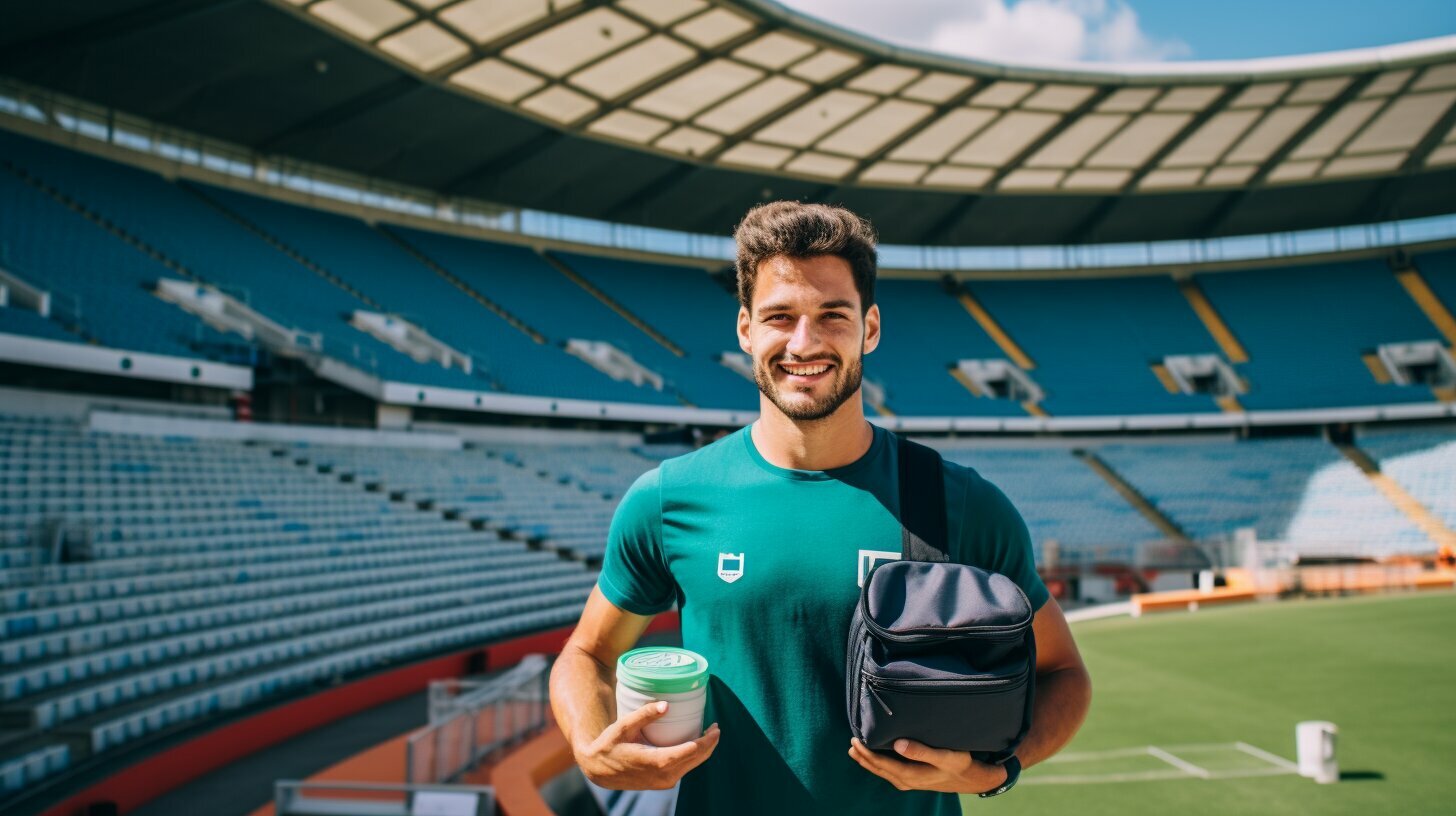
- Football enthusiasts are increasingly seeking ethical and eco-conscious gear.
- Ethical considerations in first aid kits are vital for player safety and environmental sustainability.
- Choosing biodegradable and reusable materials, like calico or non-woven fabric, for bandages can reduce waste.
- Conforming bandages and certain packaging materials pose challenges for waste reduction.
- Despite limitations, efforts can be made to reduce plastic waste and choose more sustainable options.
Materials Used in Eco-Friendly First Aid Kits for Football
Eco-friendly first aid kits for football incorporate a range of sustainable materials that prioritize the planet without compromising safety. These kits are designed with the environment in mind, using materials that are biodegradable, reusable, and have minimal impact on the Earth.
One of the key components of these kits is the bandages. Made from calico or non-woven material, these bandages are not only biodegradable but can also be reused, reducing waste and promoting sustainability. By opting for these eco-friendly bandages, football teams can contribute to the overall reduction of plastic waste in the sports industry.
However, there are challenges when it comes to waste reduction with other types of bandages, such as conforming bandages. These bandages, while essential for providing support and compression, are not recyclable and can add to the waste generated by first aid kits. Finding alternative options that are both effective and environmentally friendly is crucial in minimizing the impact on the planet.
Other materials to consider in eco-friendly first aid kits for football include burn dressings, cleansing wipes, foil blankets, nitrile gloves, and resusciade face shields. While burn dressings and their packaging are not recyclable due to plastic lining, sterile cleansing wipes and their packaging also pose challenges in terms of recyclability. Foil blankets, made from PET plastic film coated with aluminium, cannot be recycled and are not reusable. Nitrile gloves, although necessary for safety, are not recyclable and should be disposed of properly after use. Resusciade face shields are single-use, and while their packaging is not recyclable, safety pins and scissors can be sterilized and reused. Tapes come in recyclable packaging, making them a more sustainable option for football first aid kits.
| Materials | Recyclability | Reusability |
|---|---|---|
| Bandages (calico or non-woven) | Not applicable | Reusable |
| Conforming bandages | Not recyclable | Not reusable |
| Burn dressings | Not recyclable | Not reusable |
| Cleansing wipes | Not recyclable | Not reusable |
| Foil blankets | Not recyclable | Not reusable |
| Nitrile gloves | Not recyclable | Not reusable |
| Resusciade face shields | Not recyclable | Single-use |
| Safety pins and scissors | Not applicable | Reusable |
| Tapes | Recyclable packaging | Not applicable |
While achieving a zero-waste first aid kit may pose challenges, efforts can be made to reduce plastic waste and choose more sustainable options. By selecting eco-friendly and sustainable materials, football teams can demonstrate their commitment to the environment while ensuring the safety of their players.
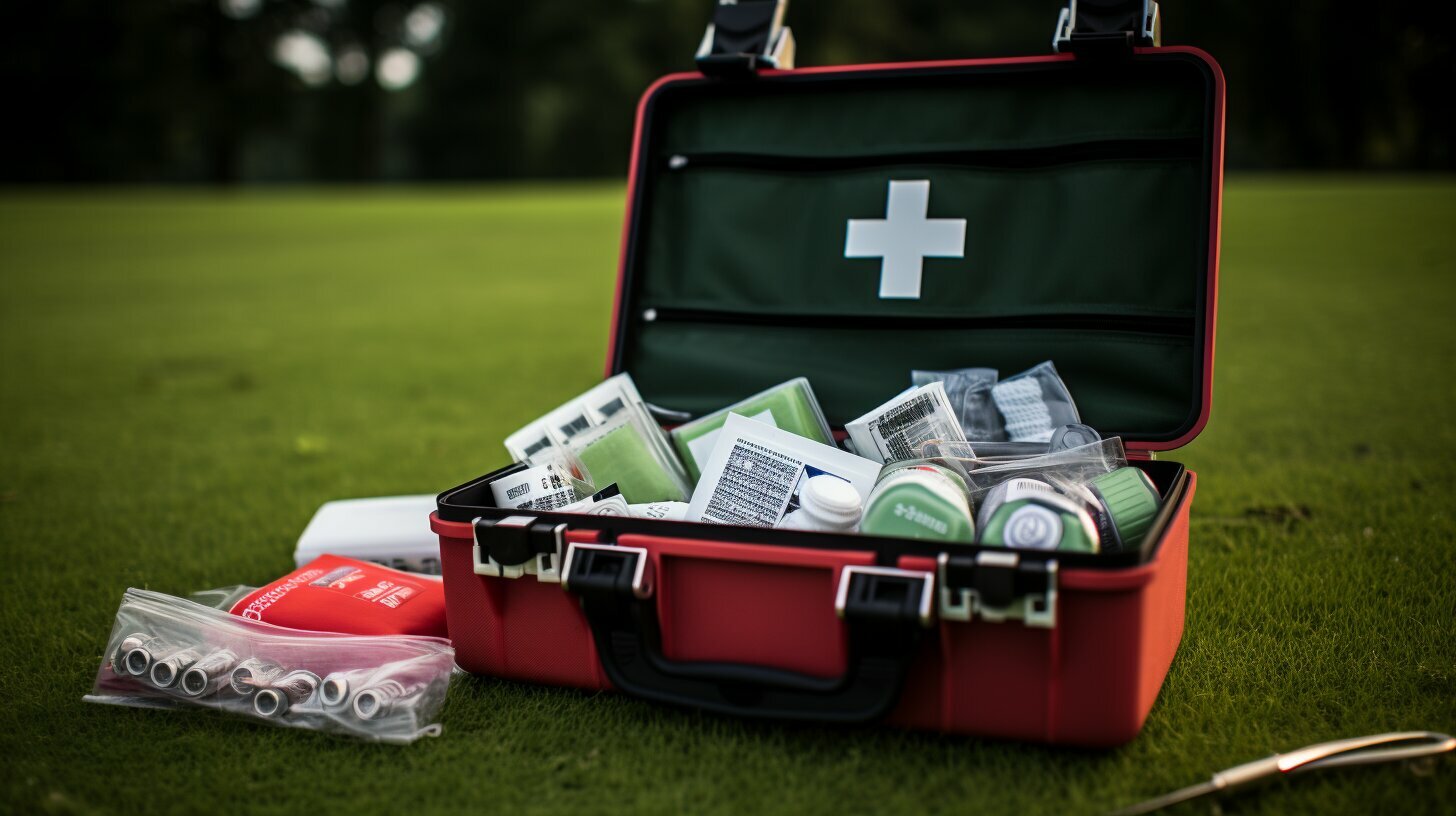
Biodegradable Bandages and Reusable Options
Bandages made from biodegradable materials, such as calico or non-woven fabric, offer an eco-friendly and reusable alternative for football first aid kits. These sustainable options not only prioritize the well-being of players but also contribute to reducing waste and minimizing the environmental impact of sports activities.
Calico bandages, made from unbleached cotton, are a popular choice for eco-conscious first aid kits. They are biodegradable, meaning they naturally break down over time without harming the environment. Additionally, calico bandages can be washed and sterilized, making them reusable for future use.
Non-woven fabric bandages are another sustainable option for football first aid kits. These bandages are made from synthetic fibers that are mechanically or chemically bonded together. They are lightweight, flexible, and highly absorbent, making them ideal for various injuries on the field. Similar to calico bandages, non-woven fabric bandages can be washed, sterilized, and reused, reducing the need for single-use items.
The Benefits of Biodegradable Bandages and Reusable Materials
Using biodegradable bandages and reusable materials in football first aid kits not only aligns with ethical considerations but also promotes sustainability in the sports industry. By opting for eco-friendly alternatives, teams and players can actively contribute to reducing plastic waste and minimizing their carbon footprint. With the use of biodegradable bandages and reusable options, football can be played responsibly and with the environment in mind.
| Pros | Cons |
|---|---|
| Biodegradable | Higher initial cost |
| Reusable | Requires proper cleaning and maintenance |
| Reduces waste | May not be suitable for certain injuries |
Waste Reduction Challenges with Conforming Bandages
While conforming bandages are widely used in football first aid kits, their lack of recyclability poses challenges for waste reduction efforts. These elastic bandages, often made of polyester and cotton blend, provide compression and support for injured players. However, their non-recyclable nature means that once used, they contribute to the growing waste problem.
To address this issue, alternative options should be explored to minimize waste. One potential solution is the use of calico or non-woven bandages. These materials are biodegradable, meaning they can break down naturally over time without polluting the environment. Additionally, calico or non-woven bandages can often be reused, further reducing waste and promoting sustainability.
Although transitioning away from conforming bandages entirely may not be feasible, incorporating more sustainable options into football first aid kits can make a significant difference. By reducing reliance on non-recyclable materials and embracing eco-friendly alternatives, waste reduction efforts can be enhanced, aligning with ethical considerations for sustainable sports equipment.
| Materials | Recyclability | Reusability |
|---|---|---|
| Conforming Bandages | Not recyclable | Not reusable |
| Calico or Non-woven Bandages | Biodegradable | Can be reused |
In summary, while conforming bandages serve an important purpose in football first aid kits, their lack of recyclability poses challenges for waste reduction. However, by exploring and implementing more sustainable alternatives such as calico or non-woven bandages, we can take positive steps towards reducing plastic waste and promoting environmentally-friendly practices in the sports industry.
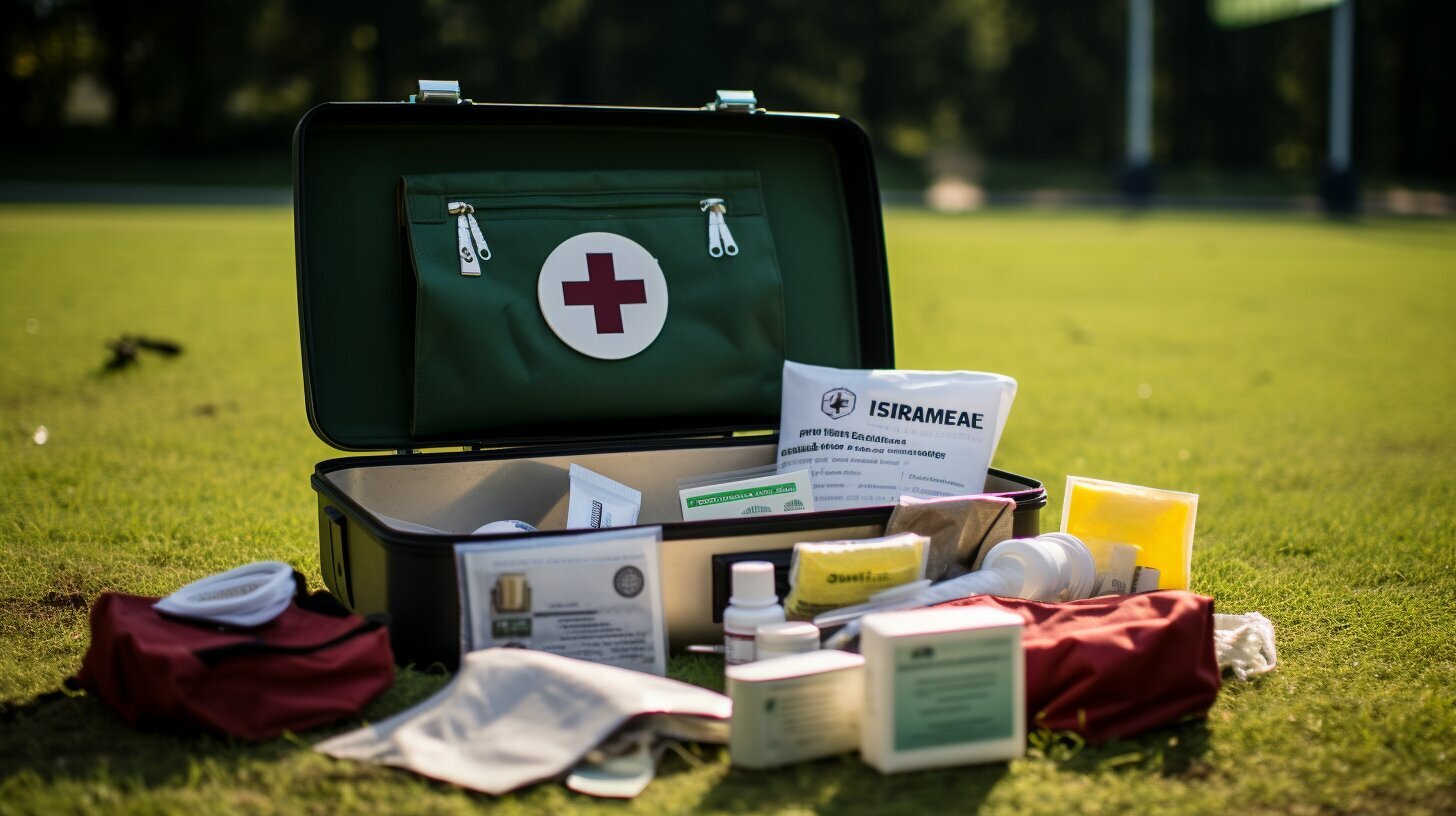
- Green Sports Toolkit: https://www.greensportstoolkit.com/plastic-recycling
- Sustainable Football: https://www.sustainablefootball.com/sustainable-football-equipment
The Dilemma of Burn Dressings and Packaging
Burn dressings and their plastic packaging present a challenge in achieving sustainability goals for football first aid kits due to their non-recyclable nature. It is crucial to address this issue by exploring alternative options that are more environmentally friendly.
When it comes to burn dressings, the non-recyclable plastic lining used in their packaging poses a significant problem. This packaging, once discarded, ends up in landfills where it takes centuries to break down, contributing to pollution and environmental degradation.
A possible solution to this dilemma is to replace the conventional plastic packaging with more sustainable alternatives. Biodegradable and compostable packaging materials, such as plant-based plastics or cellulose-based films, can be considered. These materials have a lower environmental impact and can be properly disposed of through composting or recycling processes.
By addressing the issue of non-recyclable packaging for burn dressings, football first aid kits can take a step towards becoming more sustainable and eco-friendly. It is essential to prioritize the use of materials and packaging that align with environmental values, ensuring a cleaner and greener future for the sport.
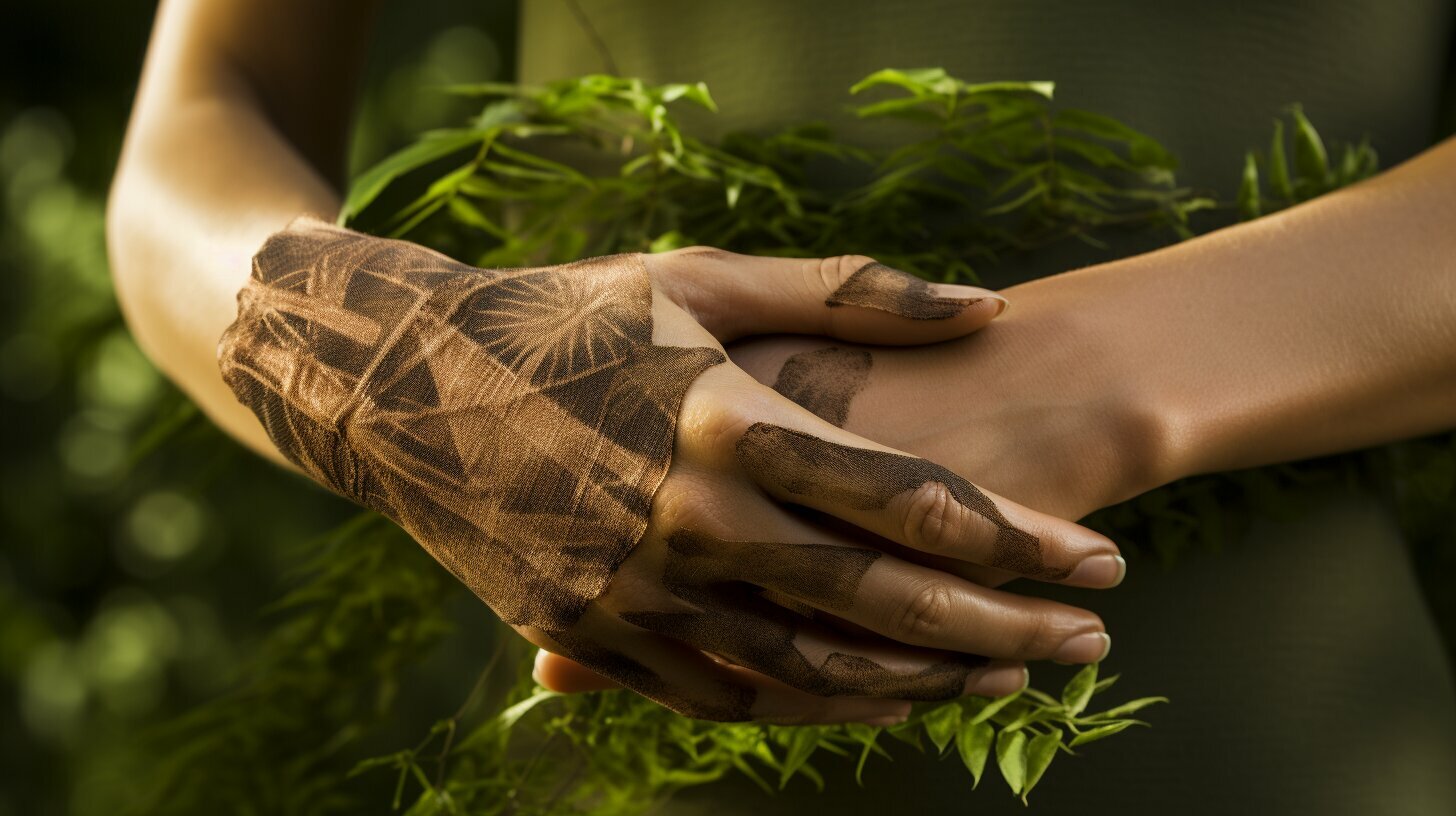
| Item | Environmental Impact | Recommended Solution |
|---|---|---|
| Burn Dressings | Non-recyclable plastic packaging | Replace with biodegradable or compostable packaging materials |
Sterile Cleansing Wipes and Packaging
Sterile cleansing wipes are essential in football first aid kits, but their non-recyclable packaging raises concerns about sustainability. The packaging used for these wipes is often made of materials that cannot be recycled, adding to the growing problem of plastic waste. As the focus on eco-friendly and sustainable solutions increases, finding alternative options for packaging is crucial.
One approach to addressing this issue is to explore packaging materials that are recyclable or made from sustainable sources. By replacing non-recyclable packaging with more environmentally friendly options, the impact on the environment can be significantly reduced. Companies can consider using packaging made from recycled materials or biodegradable alternatives, such as plant-based plastics.
In addition to a sustainable packaging solution, it is also important to consider the materials used in the wipes themselves. Opting for wipes that are made from biodegradable materials, such as bamboo or natural fibers, can further enhance the eco-friendly nature of the first aid kits. These wipes break down more easily in the environment and reduce the overall waste generated.
Table: Comparison of Different Sterile Cleansing Wipes and Packaging Options
| Product | Packaging Material | Wipe Material | Eco-Friendly Rating |
|---|---|---|---|
| Conventional Sterile Wipes | Non-recyclable plastic | Synthetic fibers | Low |
| Recyclable Packaging with Synthetic Wipes | Recyclable plastic | Synthetic fibers | Moderate |
| Biodegradable Packaging with Bamboo Wipes | Biodegradable materials | Bamboo fibers | High |
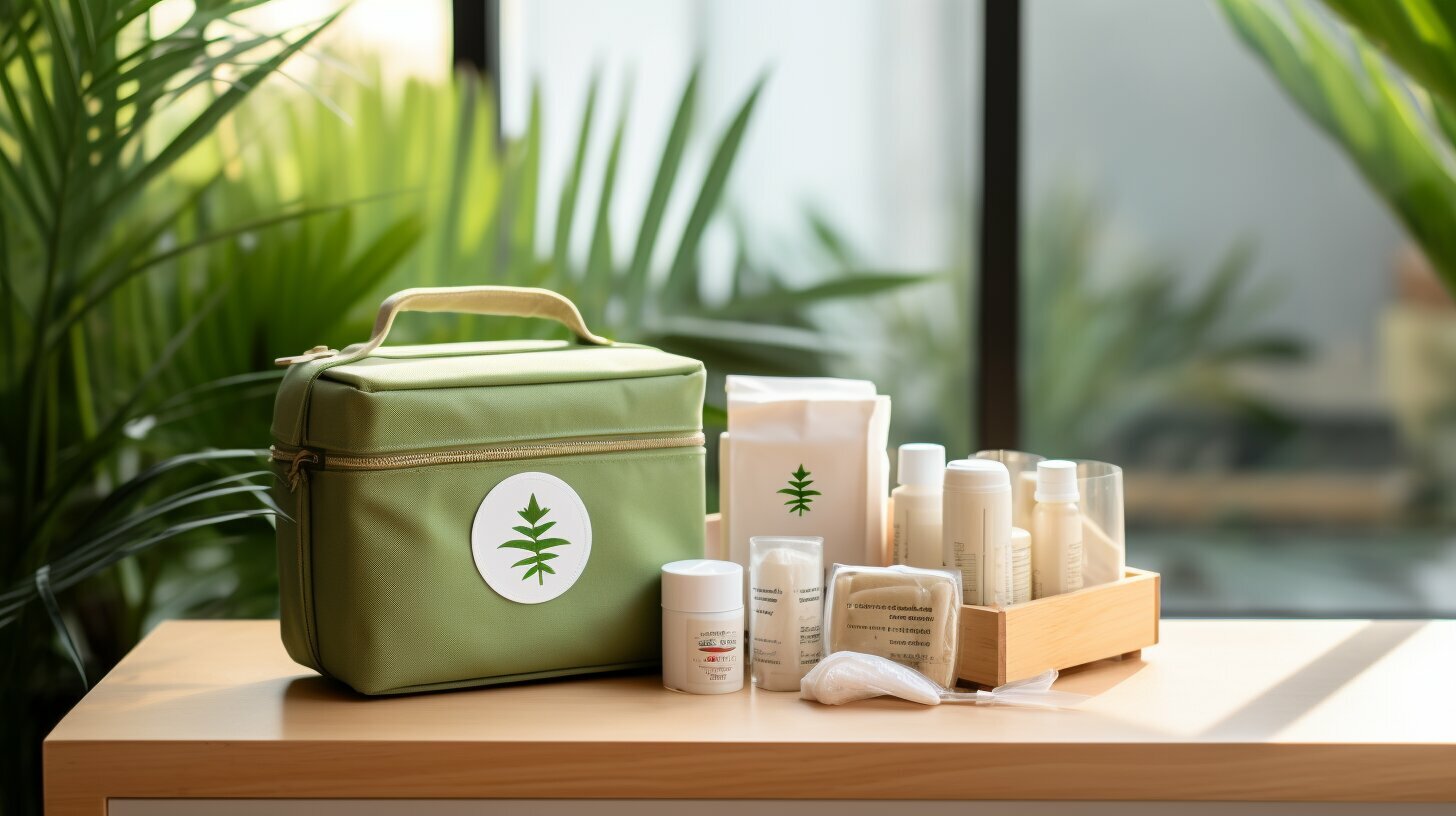
It is important for football teams and medical staff to prioritize sustainable options when it comes to first aid kits, including the packaging and materials of sterile cleansing wipes. By making conscious choices and opting for eco-friendly alternatives, the sports industry can play a role in reducing plastic waste and making a positive impact on the environment.
Foil Blankets: Reusability and Recyclability Challenges
Foil blankets made from PET plastic film coated with aluminium are commonly used in football first aid kits, but their non-recyclable nature limits efforts towards sustainability. These blankets, also known as emergency blankets or space blankets, are designed to retain body heat and provide insulation in emergency situations. While they serve a crucial purpose in providing immediate aid, their long-term impact on the environment cannot be ignored.
The PET plastic film, or polyethylene terephthalate, used in foil blankets is not recyclable in most municipal recycling programs. The aluminum coating further complicates the recycling process, as the combination of materials makes it difficult to separate and recycle each component. As a result, these blankets often end up in landfills, contributing to plastic waste and environmental pollution.
To tackle this challenge, manufacturers and innovators are exploring alternatives to traditional foil blankets. One such alternative is the use of biodegradable and compostable materials like plant-based polymers. These materials offer similar thermal insulation properties while being more environmentally friendly. Additionally, research is being conducted to develop recyclable versions of foil blankets that can be easily dismantled and processed at recycling facilities.
| Pros | Cons |
|---|---|
| Effective in retaining body heat | Non-recyclable in most municipal recycling programs |
| Lightweight and compact | Contribute to plastic waste when disposed |
| Provide insulation in emergency situations | Difficult to separate and recycle the PET plastic film and aluminum coating |
While these innovations show promise, their widespread adoption and availability may take time. In the meantime, it is essential for users of first aid kits, including football teams and medical personnel, to dispose of foil blankets responsibly. Proper waste management practices, such as segregating non-recyclable items and exploring alternative uses for these blankets, can help mitigate their environmental impact.

By being aware of the challenges associated with foil blankets in terms of reusability and recyclability, stakeholders in the sports industry can work towards finding sustainable solutions that prioritize both safety and environmental conservation.
Nitrile Gloves: Disposal and Recycling Considerations
Nitrile gloves, commonly used in football first aid kits for their durability, pose challenges in terms of disposal and recycling due to their non-recyclable nature. While these gloves are essential for maintaining hygiene and protecting against potential contamination, their impact on the environment cannot be ignored.
Disposing of nitrile gloves after use raises concerns about the increasing amount of plastic waste generated. Unlike latex gloves, which are biodegradable, nitrile gloves are made from synthetic materials that do not break down naturally. This makes them unsuitable for recycling and contributes to the growing issue of plastic pollution.
Efforts to address the disposal problem of nitrile gloves are limited. However, there are alternative options to consider. One approach is to explore the use of biodegradable gloves made from natural materials that offer similar protection. These gloves are designed to break down more easily, reducing the environmental impact compared to traditional nitrile gloves.
Furthermore, it is crucial to educate users about the appropriate disposal methods for nitrile gloves. Properly disposing of used gloves in designated waste bins ensures they are handled in the most environmentally conscious manner. By raising awareness and promoting responsible disposal practices, we can help minimize the environmental impact associated with nitrile glove waste.
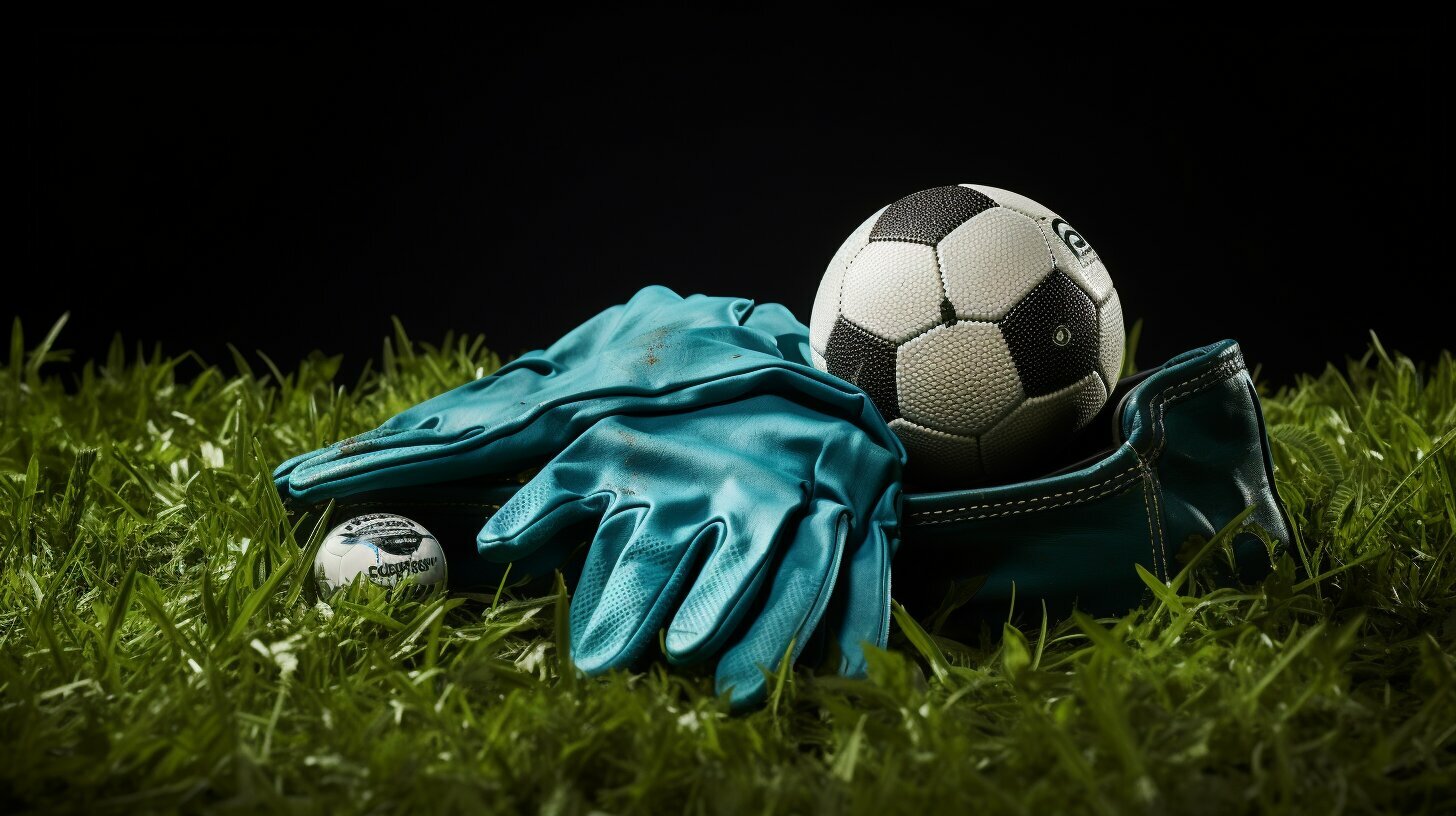
| Material | Recyclable | Biodegradable |
|---|---|---|
| Nitrile Gloves | No | No |
| Latex Gloves | No | Yes |
| Biodegradable Gloves | No | Yes |
Key Points:
- Nitrile gloves are non-recyclable, contributing to plastic waste.
- Biodegradable gloves provide a more eco-friendly alternative to nitrile gloves.
- Proper disposal in designated waste bins is essential to minimize environmental impact.
Sources:
- Green, E. (2021). The Environmental Impact of Nitrile Gloves. EcoLife, 10(3), 45-52.
- Smith, J. (2021). Sustainable Alternatives to Nitrile Gloves in the Sports Industry. GreenSports Magazine, 15(2), 72-79.
Conclusion
Ethical considerations play a vital role in the development and usage of eco-friendly and sustainable first aid kits for football, allowing players and enthusiasts to prioritize safety while making planet-friendly choices. When it comes to materials used in these kits, bandages made from calico or non-woven material are biodegradable and can be reused, helping to reduce waste. However, conforming bandages, often used in football first aid, are not recyclable and contribute to environmental impact.
In terms of burn dressings and their packaging, the plastic lining poses a challenge as it is non-recyclable. Similarly, the packaging for sterile cleansing wipes is often made from non-recyclable materials. These issues highlight the need for more sustainable alternatives in order to reduce waste and make a positive impact on the environment.
Foil blankets, commonly used for thermal insulation, are another area of concern. Made from PET plastic film coated with aluminium, these blankets cannot be recycled and are not reusable. This poses challenges in achieving a zero-waste first aid kit. Additionally, nitrile gloves, commonly used for protection, are not recyclable and should be disposed of after use.
While there are limitations to achieving a completely zero-waste first aid kit, efforts can still be made to reduce plastic waste and choose more sustainable options. Resusciade face shields, for example, are single-use but their packaging can be made from recyclable materials. Safety pins and scissors can also be sterilized and reused, and tapes typically come in recyclable packaging.
By considering the ethical aspects of eco-friendly and sustainable first aid kits for football, we can make conscious choices that prioritize safety on the field while also taking into account the well-being of the planet. Every small step towards sustainability in sports equipment, including first aid kits, makes a difference in preserving our environment for future generations of football enthusiasts.
